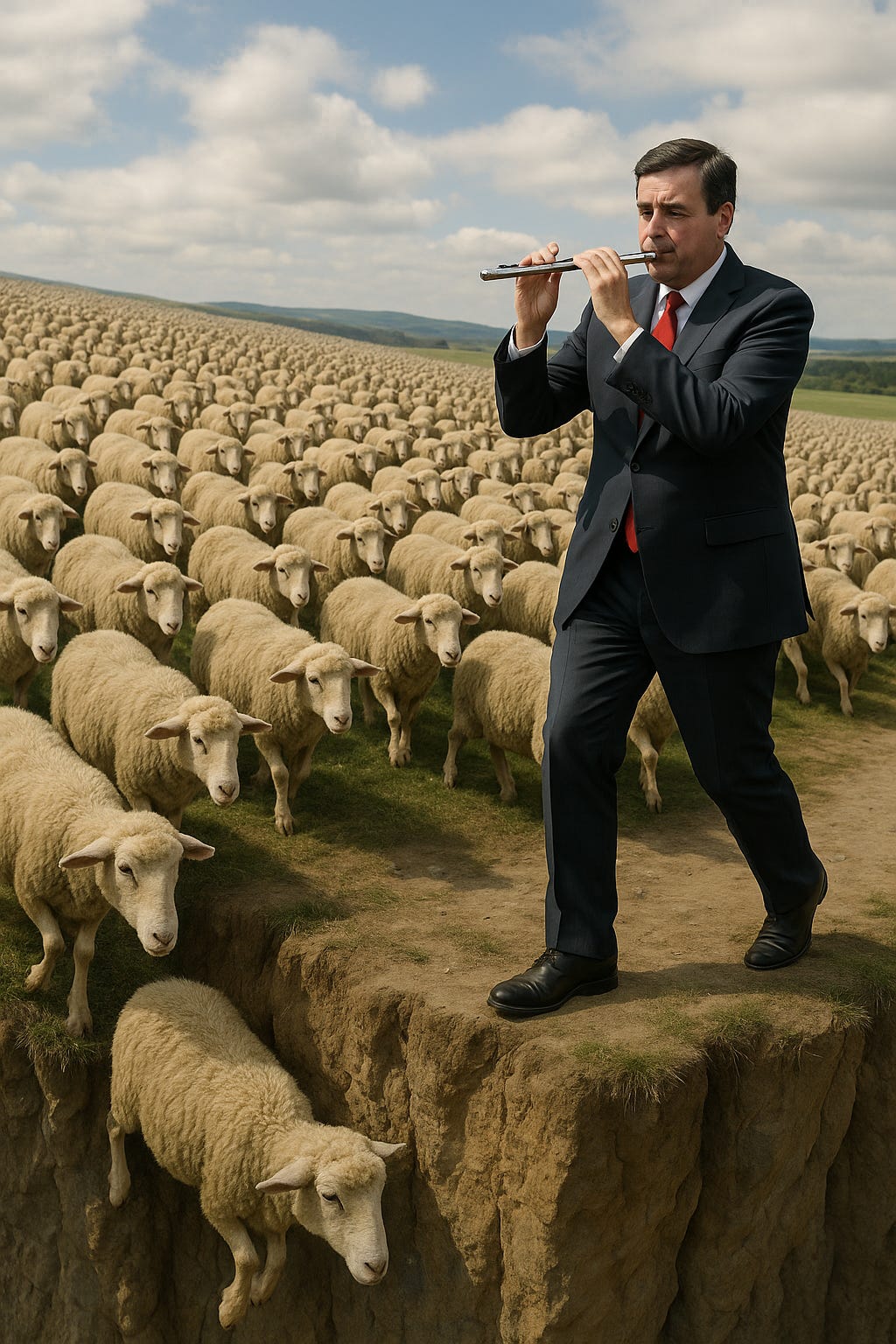The Myth of Collective Salvation
Why Big Government Programs Rarely Uplift Communities as Much as Personal Initiative
Throughout the ages, human civilizations have always been tempted by shortcuts. In our quest to increase our odds for survival, we have often been lured by the idea that someone else, a government, an institution, or a charismatic leader, can bear the weight of our responsibilities and usher us into prosperity. In modern political discourse, this temptation takes the form of what I call the myth of collective salvation. The promise is alluring: if we pool enough tax dollars, if we expand enough federal programs, if we create enough bureaucracies, then suffering will be alleviated and communities uplifted. It sounds like compassion. It feels like progress. But in reality, it often produces dependency, stagnation, and despair.
This myth thrives because it masquerades as mercy. Who could be against helping the poor? Who would oppose feeding the hungry or clothing the naked? And yet, history teaches us that good intentions do not guarantee good outcomes. Indeed, some of the most destructive policies in human history were pursued with rhetoric cloaked in compassion. What matters is not the nobility of the intention but the fruit of the implementation.
The Mirage of Government-Sponsored Compassion
The central problem with collective salvation is that it denies human nature. We are not passive creatures to be rescued by distant bureaucrats; we are moral agents endowed by our Creator with the ability to choose, to strive, to create, and to overcome. Systems that seek to do for man what man must do for himself invariably weaken his will, blunt his ambition, and erode his dignity.
Consider the War on Poverty, launched in the 1960s. Its architects declared that poverty could be eradicated through vast federal programs. Yet, more than $22 trillion later, poverty rates have barely budged. What has changed, however, is the fabric of the family and the culture of work. In many communities, government checks replaced fathers, and handouts replaced enterprise. Dependency became entrenched, and with it came cycles of despair that no amount of additional spending could fix.
Compassion that merely gives without cultivating responsibility does not uplift, it entraps. As economist Thomas Sowell once observed, “The welfare state is not really about the welfare of the masses. It is about the egos of the elites.” True compassion empowers; false compassion infantilizes.
Personal Agency: The Forgotten Power
The Founders understood this well. They did not enshrine a federal guarantee of material well-being in the Constitution. Instead, they built a system that maximized liberty, trusting that free men and women would build families, businesses, and communities strong enough to weather hardship. The American miracle was not forged in government offices but in homes, churches, and local associations.
When we place our hope in big government programs, we subtly surrender the dignity of initiative. We effectively outsource our agency to third parties whose beliefs and ambitions may be diametrically opposed to ours. When we embrace personal responsibility, we tap into the engine of human flourishing. We no longer see hardship as a life sentence but a crucible for resilience. Struggle becomes the soil from which innovation grows.
Consider the countless immigrants who arrived on American shores with little more than a determination to succeed. Without entitlement programs or safety nets, they built thriving businesses, raised educated children, and transformed entire neighborhoods. Their success did not come from waiting for collective salvation but from embracing personal initiative.




